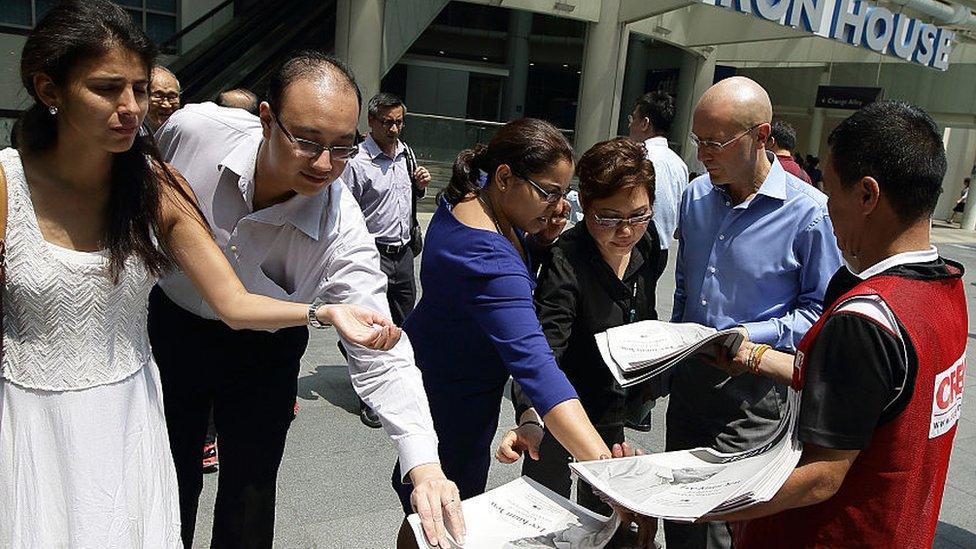Outcry as Google bans political advertising in Singapore as election looms
- Published
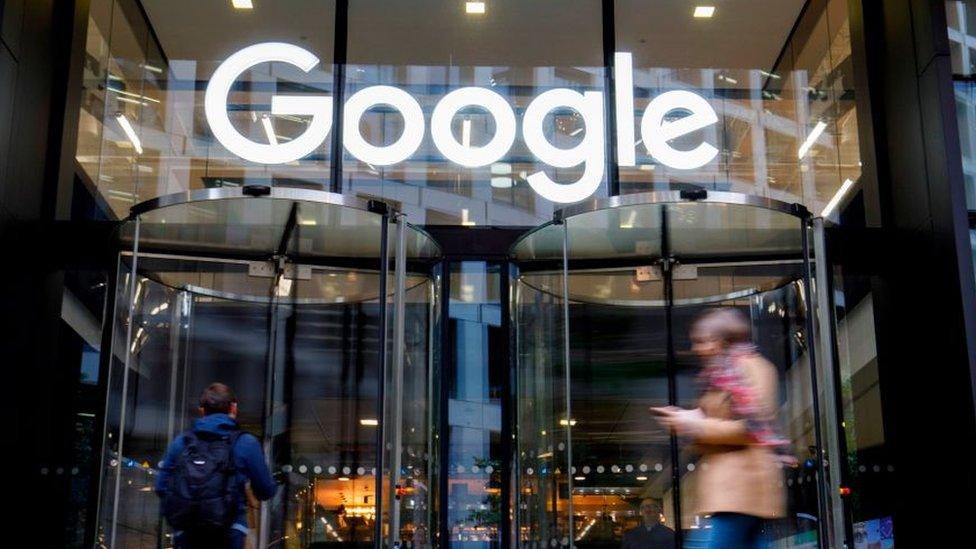
Google says a controversial new law is why it is no longer accepting political ads
A Google ban on political advertising in Singapore has sparked outrage, ahead of a widely expected election.
The tech giant said it would no longer accept political ads as of 2 December, as they are regulated under a new "fake news" law in the city-state.
But an opposition political party said the move would "deprive" Singapore voters of information.
It said it was "highly dependent on social media and the internet" to reach would-be voters.
Singapore's local media environment is highly controlled, with state-linked media outlets dominating the scene.
The Singapore Democratic Party said this control meant the internet and social media were one of the few ways it could reach possible voters.
Earlier in October, Singapore introduced a law that enables the government to order online platforms to remove and correct what it deems to be false statements that are "against the public interest".
The next general election in Singapore must be held by April 2021, but is widely expected to take place in 2020.
'Not an easy decision'
Opposition party the Singapore Democratic Party (SDP) had on 3 December published an email correspondence between itself and Google. , external
In it, it said that it had attempted to purchase ads on Google's platforms but found that it had banned political advertising.
Google confirmed to the BBC that it updated its policies in November to disallow political advertisements from 2 December 2019.
The chairman of the SDP, Paul Tambyah, said the party was "highly dependent on social media and the internet to get our message across".
He added that Singapore's media election coverage was "totally dominated by the state", and as a result "alternative parties would have no ability to educate and inform the voters if we are not able to use Google's advertising platforms".
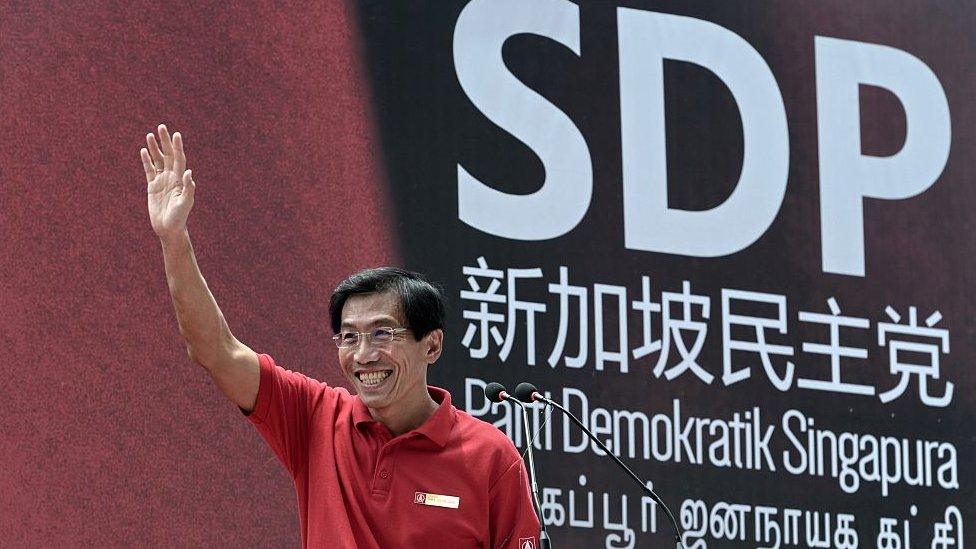
The SDP is one of a handful of opposition parties in Singapore
In a reply to the SDP seen by the BBC, Google said that it decided that it would "not accept advertising regulated by the Code of Practice for Transparency of Online Political Advertisements".
Ted Osius, the Vice President of Government Affairs and Public Policy in Asia Pacific, said it was "not an easy decision to make".
The code of practice is part of a controversial "fake news" law known as the Protection from Online Falsehoods and Manipulation Act (POFMA) that was introduced in October.
The law requires advertising intermediaries to comply with certain "obligations... to enhance [the] transparency of online political advertisements".
These include verifying the eligibility of advertisers; making available for the POFMA office content s the number of views and the amount paid for the advertisement; and other measures.
Tackling 'fake news'
This is not the first time Google has banned political ads - it has done so in Canada and Taiwan - and it recently announced restrictions worldwide.
The company has different advertising police standards for different countries in accordance with local laws.
In Singapore, Google says it prohibits ads that "influence or seek to influence the outcome of a general election" as well as "ads that promote the interests of a political party or other group of persons organised in Singapore for political objects".
Singapore's "fake news" law allows the government to order online platforms to remove and correct what it deems to be false statements that are "against the public interest".
Social media giant Facebook recently bowed to the law, adding a correction notice to a post that Singapore's government said contained false information.
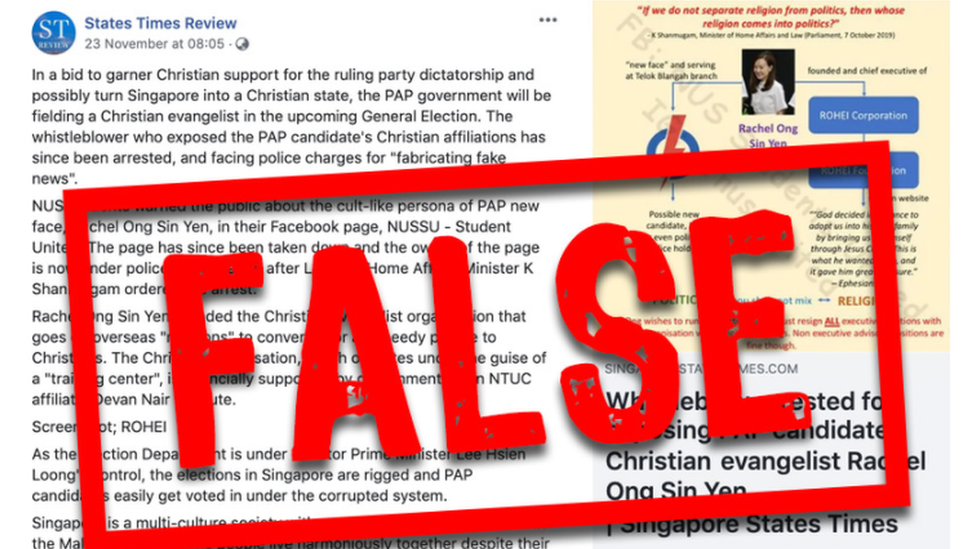
The Singapore government said a Facebook post contained "fake news"
Critics say this law threatens freedom of expression. Amnesty International said it would "give authorities unchecked powers to clamp down on online views of which it disapproves".
But the government has argued that the law safeguards against abuse of power by allowing judicial reviews of its orders.

You might also be interested in:
When misinformation leads to death threats
- Published30 November 2019
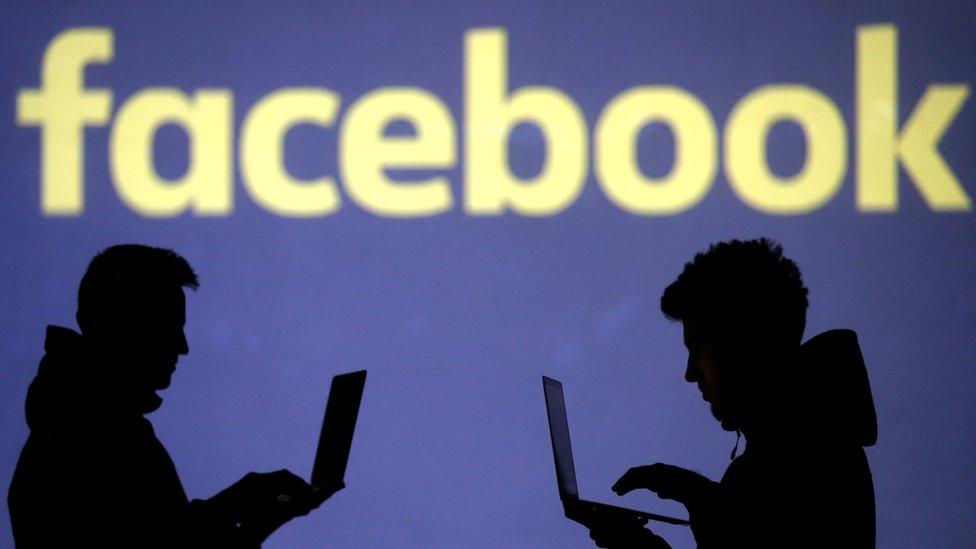
- Published28 November 2019

- Published9 May 2019

- Published21 November 2019
- Published23 May 2023
